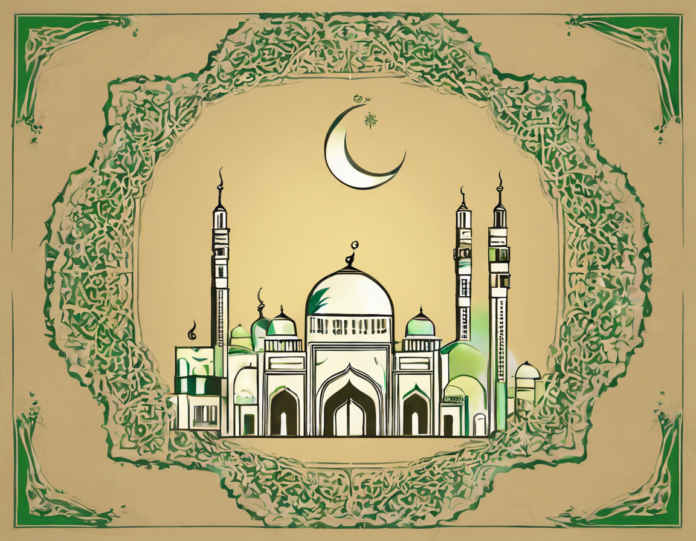Eid Milad Un Nabi: Celebrating the Prophet’s Birthday
Introduction
Eid Milad Un Nabi, also known as Mawlid al-Nabi, is a significant Islamic holiday that commemorates the birthday of the Prophet Muhammad. This observance is widely celebrated by Muslims around the world, albeit with varying practices and customs. The event is an occasion to reflect on the life and teachings of the Prophet and to engage in acts of gratitude and remembrance. This article dives into the historical significance, traditions, and practices associated with Eid Milad Un Nabi.
History of Eid Milad Un Nabi
Eid Milad Un Nabi traces its roots back to the early centuries of Islam. The celebration of the Prophet’s birthday is believed to have originated in Egypt during the Fatimid dynasty in the 10th century. Over time, the practice spread to other parts of the Muslim world, evolving into the festive occasion it is today.
Significance of Eid Milad Un Nabi
The celebration of Eid Milad Un Nabi holds immense spiritual and cultural significance for Muslims. It serves as a reminder of the Prophet Muhammad’s teachings of compassion, mercy, and peace. The occasion provides an opportunity for believers to deepen their connection to their faith, renew their commitment to following the Prophet’s example, and foster a sense of unity within the Muslim community.
Traditions and Customs
Eid Milad Un Nabi is typically marked with various traditions and customs that vary across different cultures and regions. Some common practices include:
-
Recitation of Poetry and Hymns: Muslims often gather in mosques or homes to recite poetry and hymns praising the Prophet Muhammad and recounting his life story.
-
Charitable Acts: Many individuals and communities use the occasion of Eid Milad Un Nabi to engage in acts of charity and kindness, such as feeding the hungry, donating to those in need, or organizing community service projects.
-
Decorations and Lights: Homes, mosques, and streets are often adorned with decorations, lights, and banners bearing greetings and messages honoring the Prophet.
-
Feasting: Special meals and sweets are prepared and shared with family, friends, and neighbors as a symbol of gratitude and hospitality.
-
Mawlid Processions: In some regions, processions and parades are held, with participants singing and chanting hymns in celebration of the Prophet’s birthday.
Controversies and Debates
While Eid Milad Un Nabi is widely celebrated and cherished by many Muslims, there are also debates and controversies surrounding the observance. Some scholars argue that the practice of celebrating the Prophet’s birthday is not rooted in the teachings of Islam and therefore should be avoided. Others believe that the commemoration is a valid expression of love and devotion to the Prophet and should be upheld.
FAQs about Eid Milad Un Nabi
-
What is the date of Eid Milad Un Nabi?
Eid Milad Un Nabi falls on the 12th day of Rabi’ al-Awwal, the third month in the Islamic lunar calendar. -
How do Muslims typically celebrate Eid Milad Un Nabi?
Celebrations vary by region but often include recitations of poetry, charitable acts, decorations, feasting, and processions. -
Is Eid Milad Un Nabi a public holiday in Muslim-majority countries?
In some countries, such as Pakistan and parts of India, Eid Milad Un Nabi is recognized as a public holiday with government offices and schools closed. -
Are there specific prayers or rituals associated with Eid Milad Un Nabi?
While there are no specific prayers mandated for the occasion, Muslims may choose to offer special prayers and supplications in honor of the Prophet. -
How can individuals from non-Muslim backgrounds respectfully acknowledge Eid Milad Un Nabi?
Non-Muslims can show respect for the celebration by learning about its significance, offering good wishes to Muslim friends and colleagues, and avoiding behavior that may be seen as disrespectful.
Conclusion
In conclusion, Eid Milad Un Nabi is a joyous occasion that allows Muslims to express their love, reverence, and gratitude for the Prophet Muhammad. The celebration serves as a reminder of the timeless teachings and exemplary character of the Prophet, inspiring believers to embody his values of compassion, justice, and humility in their own lives. While the observance of Eid Milad Un Nabi may be subject to differing opinions within the Muslim community, the overarching spirit of unity and devotion to the Prophet remains central to this significant commemoration.


